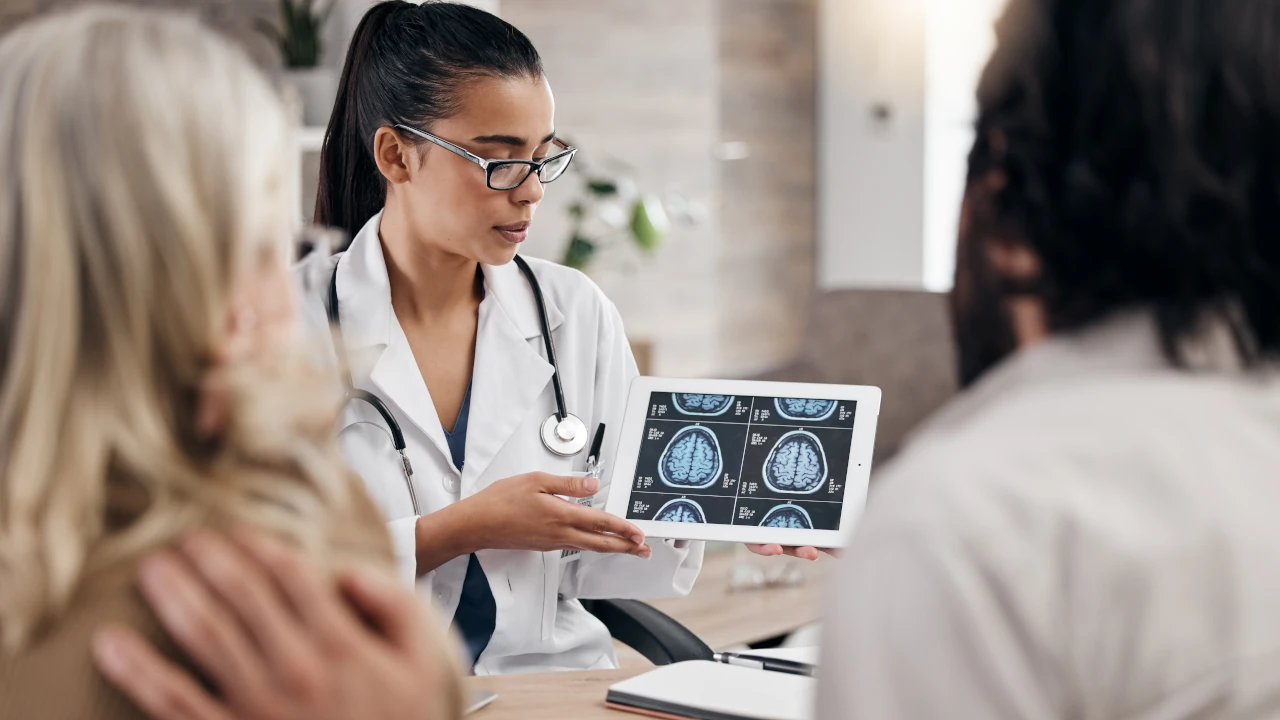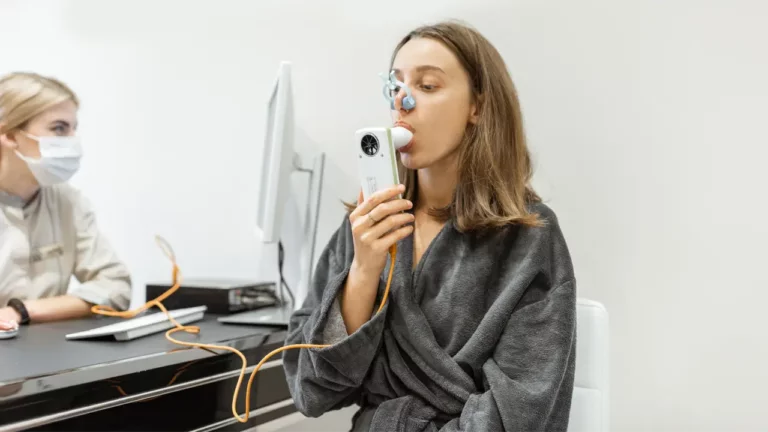Chronic diseases pose a significant challenge to healthcare systems worldwide, often requiring continuous management and monitoring to prevent complications and improve patient outcomes. As the prevalence of chronic conditions such as diabetes, heart disease, and respiratory illnesses continues to rise, the need for innovative solutions becomes ever more critical. Enter digital health solutions—an array of advanced technologies designed to revolutionize the management and monitoring of chronic care.
From Remote Patient Monitoring to telemedicine and mobile health apps, a variety of innovative digital tools are transforming how healthcare providers deliver care and how patients manage their health. This article explores the pivotal role of digital health solutions in chronic care, highlighting their benefits, applications, and potential to reshape the future of healthcare.
How Digital Health Solutions Leverage Its Continuous Chronic Care?
Digital health solutions are revolutionizing the management and monitoring of chronic diseases by leveraging technology to provide continuous, personalized care. These solutions include mobile health apps, wearable devices, telemedicine, and remote monitoring systems, which collectively enhance patient engagement, improve clinical outcomes, and reduce healthcare costs.
Benefits
- Enhanced patient engagement: Digital health tools empower patients to take an active role in managing their health. Apps and wearable devices provide real-time feedback and personalized insights, encouraging adherence to treatment plans and lifestyle changes.
- Improved clinical outcomes: Continuous monitoring allows for the early detection of potential health issues, enabling timely interventions. For example, remote monitoring of blood glucose levels in diabetic patients can help prevent complications by alerting both patients and healthcare providers to abnormal readings.
- Cost efficiency: By reducing the need for frequent in-person visits, digital health solutions can lower healthcare costs. Telemedicine consultations, for instance, save time and resources for both patients and providers.
- Data-driven insights: The vast amounts of data collected through digital health devices can be analyzed to identify trends, predict health risks, and tailor treatments to individual patients. This data-driven approach enhances the precision of chronic disease management.
What are the Possible Challenges?
- Data privacy and security: The collection and transmission of sensitive health data raise concerns about privacy and security. Ensuring robust data protection measures and compliance with regulations like HIPAA is critical.
- Digital divide: Not all patients have equal access to digital health technologies. Factors such as socioeconomic status, digital literacy, and geographical location can impact the adoption and effectiveness of these solutions.
- Integration with existing systems: Integrating digital health tools with existing electronic health records (EHR) and healthcare systems can be complex and require significant investment in infrastructure and training.
- Regulatory and reimbursement issues: The regulatory landscape for digital health solutions is still evolving, and inconsistent reimbursement policies can hinder widespread adoption. Clear guidelines and supportive policies are needed to facilitate the integration of these technologies into routine care.
The digital health solutions hold significant promise for transforming the management and monitoring of chronic diseases. By enhancing patient engagement, improving outcomes, and reducing costs, they offer a path to more efficient and effective chronic care. However, addressing challenges related to data privacy, accessibility, system integration, and regulatory support is essential for their successful implementation.
Empowering Patients with Remote Monitoring Tools
One of the most significant advancements in digital health solutions is the development of remote monitoring tools. These tools enable patients to track their health parameters, such as blood glucose levels, blood pressure, and heart rate, from the comfort of their homes.
- Wearable Fitness Trackers: Devices that monitor physical activity, heart rate, and sleep patterns.
- Smart Glucose Monitors: Devices that continuously track blood sugar levels and send data to connected apps.
- Connected Blood Pressure Cuffs: Tools that measure blood pressure and transmit readings to healthcare providers in real-time.
Real-Time Data Exchange
- Continuous Data Collection: Devices continuously collect health data, which can be transmitted in real-time to healthcare providers.
- Proactive Management: Real-time data exchange allows for proactive management of chronic conditions, enabling timely interventions and reducing the likelihood of complications.
Empowering Patients and Providing Reassurance
Remote monitoring tools not only empower patients by giving them control over their health but also provide a sense of reassurance as they receive immediate feedback and support.
- Control Over Health: Patients can track their health parameters and make informed decisions about their care.
- Immediate Feedback: Devices provide real-time alerts and updates, ensuring prompt action in case of significant fluctuations.
Telehealth Platforms: Bridging the Gap
Telehealth platforms have emerged as a crucial component of digital health solutions, especially in the realm of chronic care. These platforms facilitate virtual consultations, allowing patients to connect with their healthcare providers without the need for in-person visits.
- Virtual Consultations: Enable patients to receive medical advice and treatment from the comfort of their homes.
- Reduced Burden on Healthcare Systems: Telehealth decreases the demand for in-person visits, alleviating pressure on healthcare facilities.
- Enhanced Access to Care: Improves access for patients in remote or underserved areas, ensuring they receive necessary medical attention.
Benefits for chronic condition management
For patients with chronic conditions, regular follow-up appointments are essential for effective disease management. Telehealth makes it easier to schedule and attend these appointments, ensuring continuous monitoring and support.
- Easier appointment scheduling: Simplifies the process of arranging regular check-ups and follow-ups.
- Continuous monitoring: Ensures that healthcare providers can keep a close watch on the patient’s condition.
- Ongoing support: Provides a platform for continuous communication and support between patients and healthcare providers.
Flexibility and convenience of virtual visits
Moreover, virtual visits can be more frequent and flexible, accommodating the patient’s lifestyle and reducing the time and cost associated with travel.
- Increased frequency of visits: Patients can have more frequent check-ins without the hassle of travel.
- Flexibility: Appointments can be scheduled at convenient times, fitting into the patient’s daily routine.
- Cost and time savings: Eliminates the need for travel, saving patients both time and money.
Integration of Data Analytics in Personalized Chronic Care Management
The integration of data analytics in digital health solutions is a game-changer for personalized chronic care management. Advanced algorithms and machine learning models analyze the vast amounts of data collected from remote monitoring tools and telehealth platforms. This analysis helps identify patterns, predict potential health issues, and tailor treatment plans to the individual needs of each patient.
Predictive analytics for proactive care
Data analytics can detect subtle changes in a patient’s health metrics that might indicate an impending exacerbation of their condition. Healthcare providers can then adjust treatment plans proactively, potentially preventing hospitalizations and improving overall outcomes.
Enhancing precision of interventions
Personalized care plans, informed by data analytics, enhance the precision of interventions and ensure that patients receive the most effective treatments for their specific conditions.
Enhancing Communication and Patient Engagement
Effective communication between patients and healthcare providers is critical in chronic care management. Digital health solutions facilitate seamless communication through secure messaging, video calls, and patient portals. These platforms enable patients to ask questions, share updates, and receive timely advice, fostering a collaborative approach to care.
Boosting patient engagement
Digital health solutions enhance patient engagement by providing educational resources and self-management tools. Patients can access information about their condition, treatment options, and lifestyle modifications through apps and online portals. Gamification elements, such as setting health goals and tracking progress, motivate patients to stay engaged in their care.
Integrating DrKumo RPM Solutions: A New Era in Chronic Disease Management
DrKumo Remote Patient Monitoring (RPM) solutions are at the forefront of revolutionizing chronic care management. By seamlessly integrating DrKumo’s advanced RPM technology into healthcare workflows, providers can enhance patient monitoring, improve communication, and personalize care plans like never before. With DrKumo RPM solutions, healthcare providers can harness the power of real-time data to proactively manage chronic conditions, leading to better outcomes and improved quality of life.
Takeaways
Digital health solutions are revolutionizing the management and monitoring of chronic diseases by providing innovative tools that empower patients, enhance communication, and enable personalized care. Remote monitoring devices, telehealth platforms, and data analytics are at the forefront of this transformation, making chronic care more efficient, accessible, and patient-centric.
As these technologies continue to evolve, they hold the promise of improving the quality of life for millions of individuals living with chronic conditions and reducing the burden on healthcare systems worldwide.
Harness the power of real-time data to proactively manage chronic conditions, leading to better outcomes and improved quality of life for your patients. Contact us now to learn more about how DrKumo RPM solutions can revolutionize your practice.
Disclaimer: The information provided in this article is for informational purposes only and should not be construed as medical advice. Readers are encouraged to consult with qualified healthcare professionals regarding any questions or concerns about their health or medical conditions.








